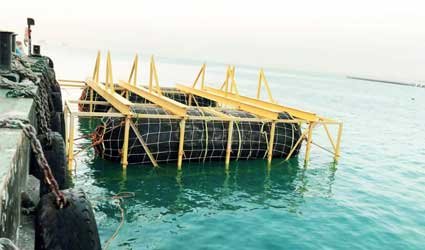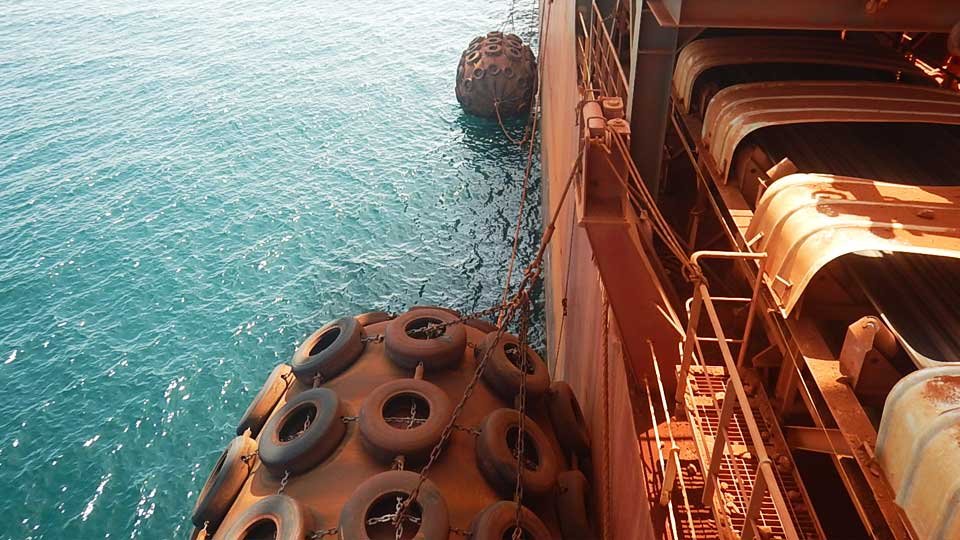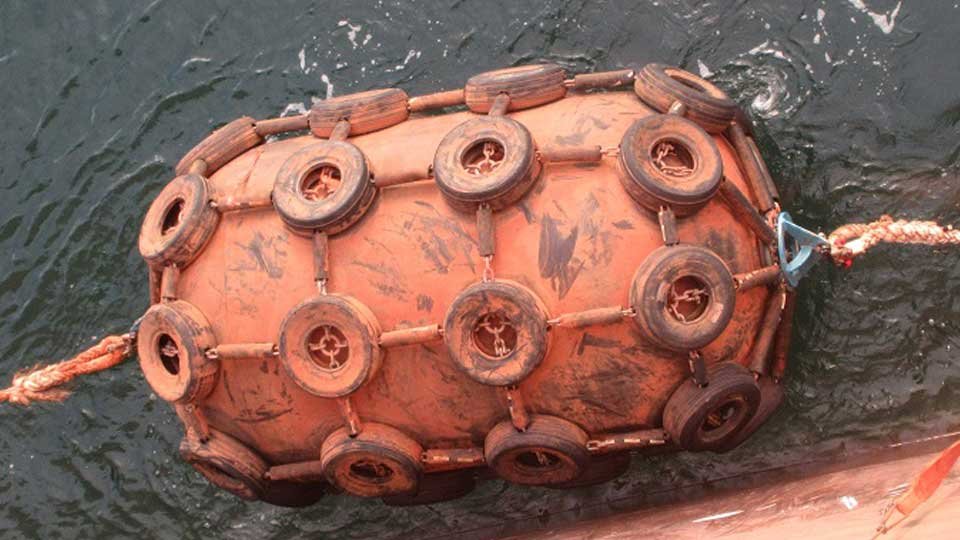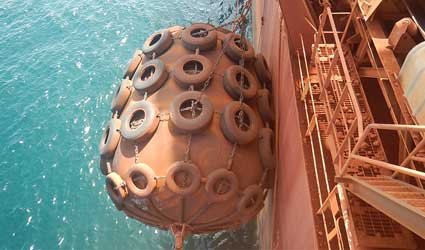
“National Abalone No.1” satthe bottom of Bohai Sea Successfully
10/15/2020
Ocean cooling pipeline laying project of power plant in Kuwait
08/20/2021A global logistic company in U.A.E. had a project in Guinea and required large size fenders for STS operation. They came to know Nanhai on the website and got connected with us. These fenders are serving well in the destination and clients plan to purchase more for their vessels in coming year.
They have problems with hanging the fenders properly due to space limit. Nanhai's R&D team helped them with designing a harness. The customers show big thanks for us and planning to purchase again this year.


Ship to ship (STS) transfer is the term primarily applied to the transfer of crude oil, petroleum products, liquid bulk chemicals and liquefied gas between sea-going tankers. There is also an increasing reliance on dry bulk cargo transfers between ships, but these are not specifically considered here.
The STS operation can be undertaken at sea, with either both vessels underway or one ship mooring alongside another at anchor. Operations are sometimes carried out in port, under the jurisdiction of a port or harbour authority, with one ship secured to a shore installation and one or more vessels mooring alongside.
STS oil cargo transfers involving oil tankers of 150 gross tonnage and above have been regulated on a statutory basis since the implementation of MARPOL, Annex I, Chapter 8 (Regulations 40 to 42), which entered into force on 1 January, 2011. These ships are required to carry an STS operations plan, which has been approved by their respective flag administration.
The STS operation can be undertaken at sea, with either both vessels underway or one ship mooring alongside another at anchor. Operations are sometimes carried out in port, under the jurisdiction of a port or harbour authority, with one ship secured to a shore installation and one or more vessels mooring alongside.
STS oil cargo transfers involving oil tankers of 150 gross tonnage and above have been regulated on a statutory basis since the implementation of MARPOL, Annex I, Chapter 8 (Regulations 40 to 42), which entered into force on 1 January, 2011. These ships are required to carry an STS operations plan, which has been approved by their respective flag administration.


